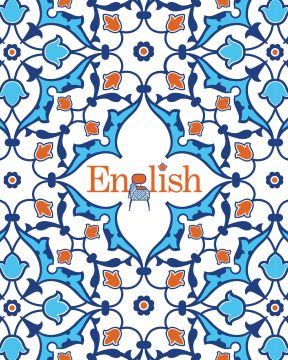Learning another language is like becoming another person.
— Haruki Murakami
Years ago, I ran a teambuilding class using improv games for an I.T. group. Despite the diversity of heritage and appearances in the group, there was only one person in the group who was an immigrant. “Min” had a thick Chinese accent and, despite a decent vocabulary, spoke much slower than the others present. During the event, we played a game where the characters speak in a fake foreign language; no English was allowed at all as we used our faces, bodies, and gibberish to try to convey meaning. After struggling with the other games, Min came to life, blowing away everyone else there – on equal terms of communication with them for the first time ever. Attendees kept commenting, “Is that really Min?” At the break, I said, “That’s really Min! You’re seeing who she is when she can fully express herself without being hampered by English vocabulary, slang, and grammar.” From then on, they saw her brilliance differently. Such is the subtext of English, the 2023 Pulitzer Prize Winner in Drama which opened last Thursday at The Old Globe.
Mary Apick, Ari Derambakhsh, Pooya Mohseni, Tara Grammy, Joe Joseph
Playwright Sanaz Toossi is of Iranian descent, her mother having emigrated to the United States after the Iranian Revolution. She sets her play in 2008, a tumultuous time in Iran, where protests and more liberal thinking was causing both disturbance and great thought. Many wanted to learn English and leave Iran, having gotten glimpses of what the western world was like; others wanted to stay to see Iran grow. Others did not wish to emigrate, as they wanted to be fully understood in their native language (Iranian culture features many languages, but the play focuses on people who are fluent in Farsi).
Pooya Mohseni, Tara Grammy, Ari Derambakhsh, Joe Joseph, and Mary Apick
Marjan (Pooya Mohseni) is an adult-education teacher running a small class for three women and one man, Omid (Joe Joseph), who are all at differing levels of English ability. Marjan has great love of English, having lived abroad for years, and uses her class as a chance to keep her own skills high, often flashing the “English Only” on her desk to remind students not to use Farsi in her room. Omid seems to absorb English easier than the other students do, causing frustration for blunt-talking Elham (Tara Grammy) who hates how hard it is to express herself. Elham does better than Goli (Ari Derambakhsh), but Goli differs in that she enjoys the challenge, rather than resisting it like Elham. Scraping the bottom of the class is the eldest, Roya (Mary Apick), who struggles the most. She is concurrently dealing with frustration with her son who has moved to Canada and seems to be rejecting his Farsi past, including choosing an American-sounding first name. When Marjan encourages everyone in class to choose an English first name for the class, Roya bristles, saying that while it’s important to learn English, “our mothers gave us our names.”
Tara Grammy and Pooya Mohseni
English reminds us how much we give up of our natural self when we express ourselves with words that aren’t part of our upbringing. One of the women confesses, “When you talk in a language that isn’t yours, you feel like you’re always so loud!” Later, one shares sadly that when you immerse yourself in another culture with a different language, “You go years without making anyone laugh.” Through Toossi’s story, we learn far more about the five and their personal struggles through their motivations behind learning English. Marjan is the anchor, trying to encourage them, but when the steel of the anchor herself is more like silver plating over balsa wood, the ship gets rocky.
Joe Joseph, Pooya Mohseni, and Mary Apick
In the first few minutes, the audience gets used to a clever convention that when the characters are talking more stiltedly, it’s English; when they let loose and speak more freely, that’s when they’re supposedly talking in Farsi. Some of the best humor and pathos come from when they let loose their bright minds, unhampered by the difficulty of English.
Joe Joseph and Pooya Mohseni
In a 2022 interview with The New York Times, Toossi is asked why she wrote this play as a comedy and she replied, “’¦Pain looks different than how we think it looks and also joy is always there. Kindness is always there. There’s so much laughter through it.” That said, despite some genuine laughs at times, at least in this direction by Arya Shahi, the staging feels far more like a beautiful drama with sweet moments than a comedy with poignancy.
Mary Apick and Ari Derambakhsh
Perhaps this is because Shahi, as a first-generation Iranian director, feels so much for the characters. In a recent interview with Sonia Desai, Shahi shares, “I think it’s always worth being reminded that an accent is the residue of a second mode of being. We often hear an accent and think’¦this person does not have substance because their way of speaking is flawed but the accent means there’s a whole world you’re not seeing.” Toossi lets us see this other world.
Tara Grammy and Ari Derambakhsh
photos by Rich Soublet II
The Old Globe
Sheryl and Harvey White Theatre
1363 Old Globe Way in Balboa Park
Tue-Thu at 7; Fri at 8; Sat at 2 & 8; Sun at 2 & 7
ends on Feb 18, 2024 EXTENDED to February 25, 2024
for tickets, call 619.234-5623 or visit The Old Globe

